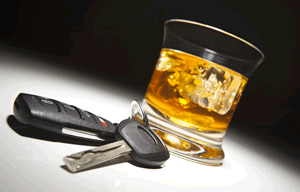Probation
What does Probation mean?
Probation is a penalty assessed by the court following a criminal conviction. Probation is often granted in lieu of a prison sentence, allowing the accused to remain in the community at large. Probation, however, is contingent on whether or not the accused is able and willing to meet the terms of probation.
Common probationary terms include:
-Reporting to a probation officer on specified days
-Maintaining employment
-Attending School
-Remaining in a specific residence
-Submitting to random drug testing
-Forfeiting the right to own a gun or carry a knife
-Submitting to random searches by a police officer or a probation officer
-Submitting to random drug or alcohol testing
-Obeying all laws
Probationary terms are determined by the court. Individuals who violate the terms of their probation may be required to serve the maximum prison term for their underlying offense. Decisions for probation violations will be decided by the court after they review the factors of the case, including the criminal history of the accused and the seriousness of the original criminal charges.
Parole vs. Probation
Parole, unlike probation, is early release from prison. It is a conditional release that may be rescinded for any number of violations or terms, as defined by the court prior to parole.
Parole, like probation, may have imposed conditions, and many of these conditions are similar to those outlined for probation. For example, a convict who has been paroled may also have to maintain employment, avoid alcohol and drugs, refrain from committing other criminal offenses, submit to random drug and alcohol testing, wear an electronic monitoring device, attend counseling sessions and report to their parole officer.
Probation violations what do I do?
If you have violated your probation the probation officer generally has some discretion about the penalties which should be imposed, which could include a probation violation hearing in court. If you are scheduled to appear at a hearing the prosecuting attorney will present evidence of your violation. They will need to convince the court of your violation through a preponderance of evidence.
If the court is convinced you may have your probation extended, you may be required to spend time in jail, or you may be sent to prison to serve the entirety of the sentence. Judges will make their decision based on the severity of the offense and whether or not you are a repeat offender.
You have the right to an attorney at the hearing, and you may also present evidence to refute the claims presented by the prosecution.
Related Pages

Can a police officer come into your home if there looking for someone, but only minors are there?
Category: Criminal Law
Lawyers near
Term of the Day
Expungement
Expungement is the process of getting a DUI conviction erased or eliminated from a driver\'s driving record. Whether or not an expungement is allowed after DUI depends on the laws of the state where a driver is convicted.
Category: DUI and DWI






